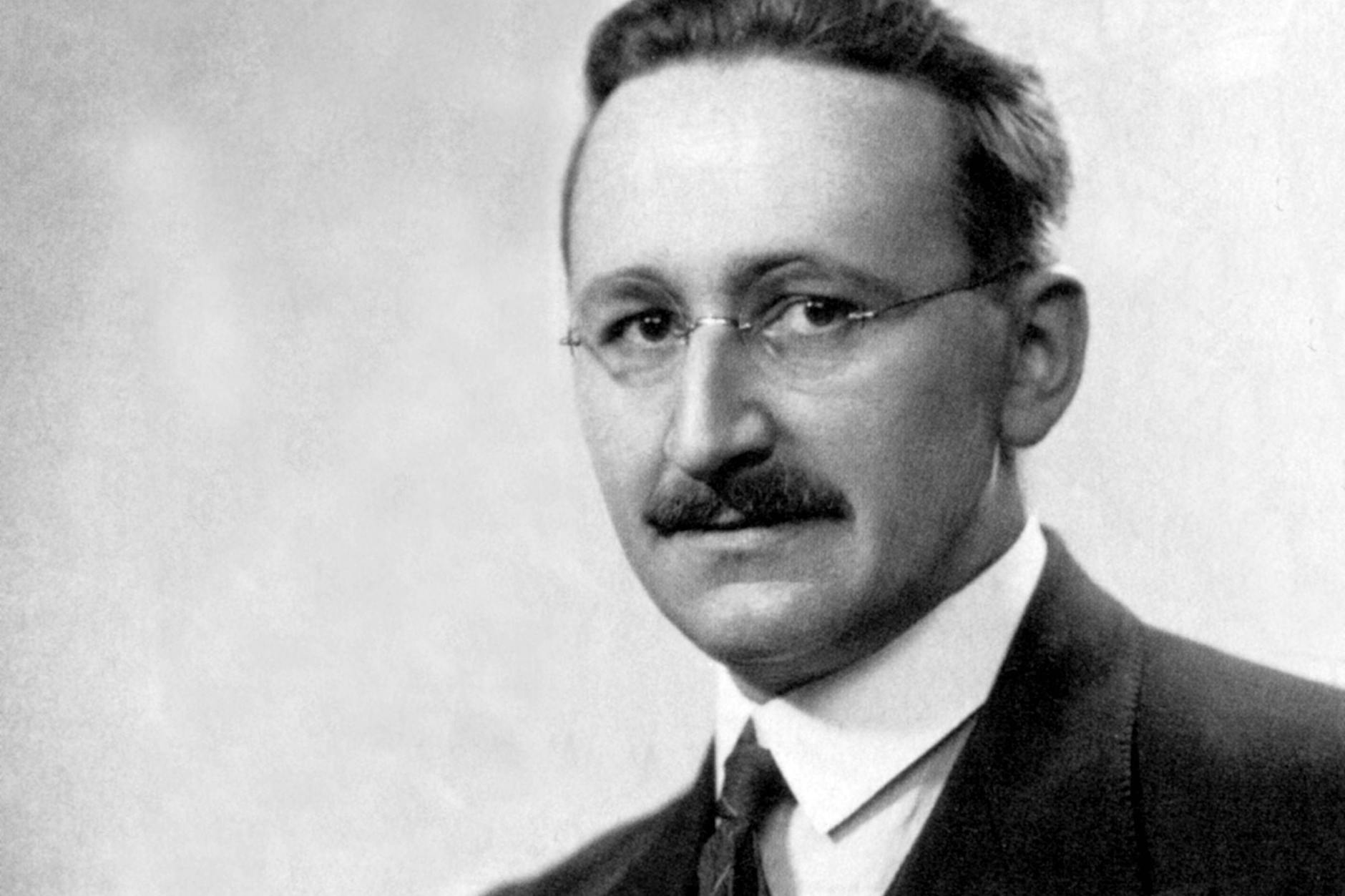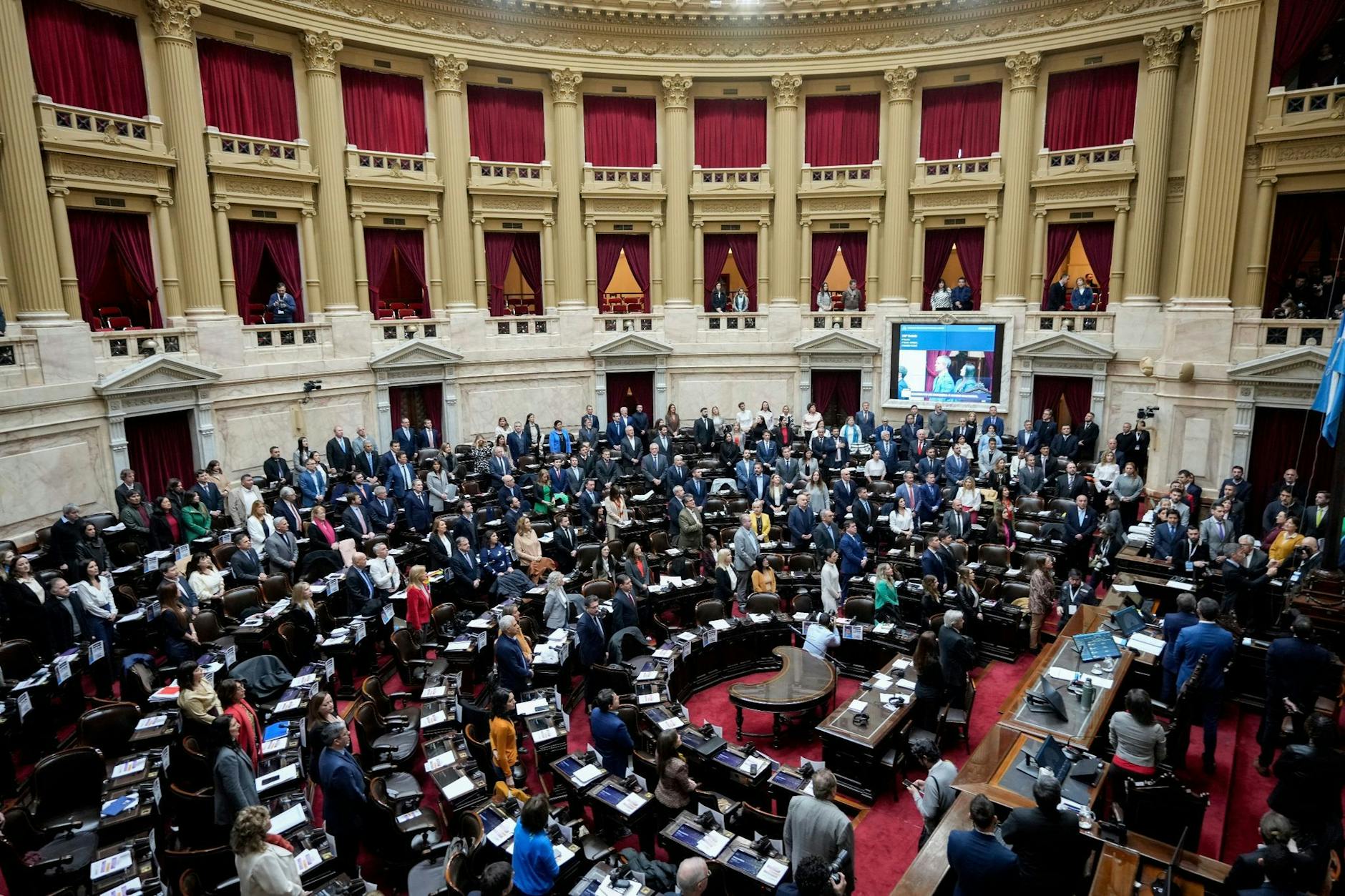The German professor trusted by Javier Milei: “Capitalism is the only just system”

In Europe, Argentina's reforms are seen solely as an economic project, but Milei himself speaks of a "moral revolution." A conversation with his biographer, Philipp Bagus.
In Europe, Javier Milei's reforms are primarily understood as an economic project—or even denigrated as a precursor to fascism. But in Argentina , a transformation is taking place that goes far beyond the dismantling of the state and the liberalization of the market. Milei and his supporters speak of a "moral revolution." Philipp Bagus has written a biography of Javier Milei and is one of the best experts on the Argentine president. The professor of economics at the Universidad Rey Juan Carlos in Madrid is, like Milei, a supporter of the Austrian School of Economics. In this interview, he discusses the threat posed by the state, Germany's decline, and the risk of dictatorship.
Professor Bagus, for a long time, reports in Germany have been mostly negative about the Argentine government: destructive economic policies, exploding poverty rates, and President Milei being called a fascist. But for some time now, we haven't been reading or hearing much about Argentina here. Why is that?
This could have something to do with President Milei being too successful. It's obvious because the media landscape is dominated by left-wing, statist journalists, and by that, I also mean public broadcasters like Tagesschau. They see that someone is coming along with completely new, libertarian ideas . He wants less government and thus represents a counter-position to everything they believe. And when the poverty rate rises in Argentina, they publish it and harp on about it. But if things go the other way, if the poverty rate falls, even lower than it was before Milei took office, then there are several ways to respond. One is to say the numbers are doctored, or one can ignore them...
You no longer live in Germany and teach in Madrid. Is the dominance of left-wing, statist perspectives the reason you turned your back on Germany?
That was certainly the case. I'm a follower of the Austrian School of Economics, and after my studies in Germany, I had no prospects. Even during my doctorate, I would have had to make compromises in choosing my topic. In Spain, there was Professor Huerta de Soto, who is also a great mentor to Javier Milei. He is one of the leading Austrian School economists worldwide. With him, I had complete freedom.

Speaking of Austria, it was recently reported that the tax and contribution rate there will rise to 45.5 percent by 2026. This is the highest value ever recorded in the Second Republic. Why does the nation that gives this economic theory its name play no role in the German-speaking world, while it is celebrated in other parts of the world?
First of all, it must be noted that all Austrian economists emigrated by 1933 at the latest. Ludwig von Mises, the doyen of the Austrian School, left, and Friedrich Hayek also emigrated. This brought the first chapter to a close.
“Socialism is deeply unjust”They fled from the Nazis.
Exactly, they fled the Anschluss of Austria. In 1938, the Nazis entered Mises's apartment and confiscated his private papers. They then fell into the hands of the Soviets in 1945, who took the papers to Moscow, and they were rediscovered there in the 1990s. The Nazis didn't want liberals or libertarians. And neither did the Communists, of course.
Why do free market forces have such a bad reputation when they are responsible for growth and prosperity?
This is the success of the left's culture war. There is no other explanation. The example of Chile is instructive. Chile was the fastest-growing and richest country in South America. And it seemed clear: people only need compare Chile to Cuba or Venezuela to see that socialist ideas bring poverty. But through the culture war, the left, and not only in Chile, succeeded in anchoring the idea in people's minds that capitalism, while efficient, is also unjust. According to the motto: The rich are getting richer, the poor poorer. The workers are exploited by the employers. In Chile, the battle of ideas was neglected or reduced to economics. Crucial to Milei's success was that he recognized that it's not just about economic efficiency, but, what is actually more important, about ethics. Every economic system needs a moral justification. Capitalism is the only just system. Socialism is profoundly unjust.
Milei himself said during the election campaign: “I ask you to join us in a moral revolution.” What is moral about anarcho-capitalism?
Socialism is based on base instincts like envy and resentment. The only just system is capitalism. Because it upholds property rights. So-called "social justice" means taking from some and giving to others by force. This amounts to unequal treatment under the law. Milei says: Don't try to live at the expense of others! Hard work, diligence, and effort are morally valuable.
Critics of capitalism in general, and Mileis in particular, see things quite differently. Their main argument is that capitalism, especially libertarian capitalism, only benefits the strong. And without the state, the weak are defenseless. Where is the solidarity with the disadvantaged, the sick, and people born poor?
Two things can be said about this: Firstly, that the strong party today is, of course, the state. It enforces itself with violence, even arbitrarily. There is a jungle between citizens and the state. The state changes laws and regulations from one day to the next. It makes some people poor and others rich. The state enforces the law of the strongest. It has a monopoly on the use of force. The individual is helplessly at the mercy of others. One can go to state courts, but the representatives of the state sit there. And the other thing one can say is that certain values are, of course, necessary for the flourishing of a free society. These include: love of neighbor, love of truth and freedom, as well as voluntary solidarity. But if that is not voluntary, it is not solidarity, but theft. Only if one gives something to others voluntarily of one's own accord does it have moral value. If I am forced to give to others, that has no moral value at all.
“The state is the scourge of humanity ”Even among libertarians, the idea of a night-watchman state exists, protecting external borders and ensuring internal peace. Is there nothing good about the state?
Not for me personally. The state is the scourge of humanity. It is utopian to believe that the night-watchman state will remain a night-watchman. In the end, all night-watchman states have become gigantic states. The best example is the USA, whose constitution explicitly limits the power of the state. And yet the US apparatus is vast and has imperialist traits. Anthony de Jasay once said: "The constitution is like a chastity belt, to which the lady herself holds the key." This allows those from whom the constitution is supposed to protect us to change it themselves. Even our Basic Law has failed to safeguard fundamental rights in times of corona. In fact, the Austrian School has shown that all goods and services can be provided on the market: better, more efficiently, more fairly. The state is unnecessary.
Don't we need the state to build roads, maintain public order, provide health care, and thus provide community services?
Who will build the roads then? A private contractor. And who will pay for them? People who want to use them. There are thousands of such things all over the world, for example, as toll roads. Private roads have existed since time immemorial. Nowadays, toll roads are quite easy to account for using electronics. Other roads would be completely free of charge; for example, neighborhood roads would be maintained by residents, while other roads leading to shopping centers would be maintained by the shop owners. Health care would also be cheaper, faster, and of higher quality in a private healthcare system.

Wouldn't such a state need a government? What about courts that can be used in disputes? Should the police and the military also be private?
As I said, the state is completely unnecessary and cannot keep its promise to solve people's problems better than people can through voluntary cooperation. The state fails at everything. Including security. Even today, many people rely on private security services because the state is unable to provide adequate security. In competition between security providers, prices fall and quality increases. There are historical examples of private police forces in America that provided security without the state. Competition between private courts leads to the courts that best resolve conflicts being called upon again. Not like today with state monopolies, where legal proceedings take an incredibly long time, are very expensive, and the outcome is practically a gamble. State jurisprudence is so poor that everyone recommends resolving conflicts out of court whenever possible. It's similar in the military. The Bundeswehr is barely operational. Competition between different providers will lead to greater security. Moreover, there would be capable militias, etc.

But even in Argentina, under a libertarian president, there is still a social safety net for the poorest of the poor. Or is this just a compromise as long as its abolition cannot be implemented?
As a philosophical anarcho-capitalist, Milei says the state is the enemy, the state is unjust because it is based on violence. Everything could be produced in the market. But in practice, Milei strives for a night-watchman state or minimal state, although of course, even that cannot be achieved overnight. The immediate abolition of welfare would have led to staggering social upheaval and to Milei's downfall. Therefore, all welfare was retained. In fact, it was even increased. Previously, there were so-called welfare distributors. However, they kept a portion for themselves. Since these "intermediaries" were removed from circulation, real welfare has increased by 50 percent.
So what is perceived in Europe as a complete dismantling of the state has hard limits in social terms?
First, Milei implemented macroeconomic stabilization. He managed to stabilize Argentina, which was on the verge of national bankruptcy and hyperinflation. And this stabilization alone triggered strong growth forces. Inflation was drastically limited. And recently, foreign trade, i.e., exchange rates, were liberalized. That would have been news that could have been reported in the German media.
Why is the lifting of foreign exchange restrictions interesting for non-Argentines?
With the Cepo (in English, "ankle bracelet"), one could not simply exchange one's money for dollars and take it out of the country. Anyone who invested in Argentina and made profits had to leave them in the country. At the official exchange rate, exchange into dollars was limited. Now that the Cepo has been eliminated or significantly reduced, investing in Argentina has become more attractive. Due to the reduction in government spending and, as a result, the inflation rate, the poverty rate has fallen sharply, because the inflation tax disproportionately affects the poor. Milei radically cut government spending and thereby achieved a balanced budget or a surplus.
Philipp Bagus on Robert Habeck: “It couldn’t have been worse”Milei's eccentric personality has somewhat overshadowed his previous work as an economics professor. His election campaign also involved teaching his economic theory to citizens in public lectures. Do you feel there is economic illiteracy among large segments of the educated population?
Of course, Robert Habeck immediately comes to mind. It couldn't have been worse. It was shocking that someone with no knowledge of the economy would become Minister of Economic Affairs. One would expect experts, or at least someone who knows what they're talking about, to take over such an important portfolio.

In Germany, it's not common practice for ministers to be experts in the field of their ministry. The public doesn't usually mind this either. This raises the question: Is knowledge of economic models too limited? Is there an education problem?
In Germany and Spain, the dream job of most young people is to become a civil servant. This is a major cultural problem. We need to address it. But Milei is, of course, not only an economics professor; he is also, above all, able to explain the theories in a way that makes them attractive and understandable, even on television, using short sentences.
After the initial negative developments in the poverty rate, the situation for Milei appears to have stabilized overall. A few weeks ago, his party also won the parliamentary elections in Buenos Aires, previously a stronghold of bourgeois forces. Will Milei now march on through to the congressional elections in October, or does he face danger?
Last year's deregulation measures are now taking full effect. Therefore, the economy will continue to grow. Politically, something unforeseen can always happen. The so-called Libra scandal was one such unexpected problem...
… the cryptocurrency $Libra, which Milei had promoted on X, after which it rose massively in value, then plummeted and many people lost money, while a few individuals are said to have earned up to $180 million.
That shouldn't have happened. Milei fell for it. Politically, a scandal can always arise, for example, if it comes out that someone close to him is corrupt. But apart from that, the economy will continue to stabilize and grow strongly. The prospects for the elections in October are therefore very good.
“Germany’s decline actually began at the end of the 1960s”Germany is mired in the longest recession in history. There has been no growth for three years. Meanwhile, the government apparatus is growing. The federal administration has grown by more than 40,000 civil servants since 2017, an increase of almost 30 percent. Is Germany facing the same fate as Argentina before Milei?
Yes, the same thing is happening there. People are increasingly turning away from the ideas of freedom inherent in liberalism. Argentina's decline was also gradual. It took decades. It's like a frog sitting in water that slowly gets warmer. You don't notice it. Germany's decline actually began in the late 1960s, when the welfare state began to grow. Only the dynamics of the free phase were still there. With reunification came even more redistribution. Gerhard Schröder countered this once again with Agenda 2010. Then came the disastrous Merkel years. With the traffic light coalition, things continued to go downhill.
And what do you think of the black-red coalition’s plans for the economy?
It's not the shift toward freedom we need. It's largely a business as usual. The end of the debt brake sends a fatal signal. Germany's decline continues.
With this rise and fall, shouldn't we speak of a perpetual cycle, a fate to which we are subject? There are no historical necessities. There was also no guarantee that Milei would win. His opponent, Sergio Massa, could have won the last election. Then things would have continued to decline for Argentina. Milei's victory was practically a miracle. The right candidate had to be chosen, his political opponents had to make mistakes, and the electoral system had to be right. There is no guarantee that Germany will become completely impoverished, nor is there any guarantee that Milei will appear if it comes to that. The danger in such major crises is that things can go in any direction. Even a statist dictator could emerge.
Do you have feedback? Write to us! [email protected]
Berliner-zeitung




